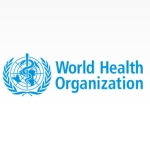
Rising from the Democratic Republic of the Congo (DRC), a new strain of the herpes virus known as clade Ib is scaring experts since it is spreading at a startling speed. This strain shows unexpected mutational potential among persons, so challenging the knowledge of the virus globally. Though it has been endemic in some parts of Africa since 1970, mpox—formerly known as monkeypox—has just now gained significant global attention following its worldwide epidemic in 2022. Now that haplogroup Ib has become well-known, however, researchers are dealing with a fast evolving virus with wide implications for public health.
Limited Resources, Infinite Problems
One of the main challenges in limiting the spread of this new strain is the scarcity of enough resources in affected regions. African labs are struggling to obtain the necessary diagnostic instruments to adequately monitor and research the virus where it is most common. Doctors and researchers working in the shadows left by this resource vacuum cannot completely understand the behavior, severity, or specifics of the propagation of the virus. Lack of complete data greatly hinders developing effective strategies to stop the epidemic.
The Transmission Complications
Among experts, the emergence of clade Ib has raised several issues particularly regarding its mode of propagation. While sexual transmission has been identified as a main factor behind the epidemic, cases among young people have also been noted, implying that the virus might be spreading through other channels. This makes efforts to control the virus more difficult as the transmission dynamics of the virus is unclear and hence it is difficult to execute targeted public health initiatives.
Demand for Global Attention
Once more, the quick proliferation and mutation of clade Ib has put mpox front stage all over. With almost 18,000 suspected cases and 615 deaths registered in Congo alone this year with verified cases popping up in other African countries as well as Sweden and Thailand, the problem is becoming worse. The World Health Organisation’s (WHO) declaration of a new health emergency draws attention to the gravity of the threat this evolving strain poses.
Keep Reading
The Current Need of Resources and Research
Chair of the WHO’smpox emergency committee and expert in infectious diseases, Dr. Dimie Ogoina has expressed tremendous concern about the existing state ofmpox research and reactions in Africa. Ogoina argues that the lack of knowledge about the epidemic mixed with the tendency of the virus to evolve creates major challenges in stopping its dissemination. He emphasizes the critical need of more robust research, more money, and more equipped labs in order to monitor and investigate the virus in real-time.
Last Thought: Worldwide Accountability
The advent of the clade Ib strain of mpox reminds us soberly of the shortcomings in the system sustaining world public health, particularly in low-income regions. The entire community has to realize how urgently coordinated responses to manage this evolving threat are required. By means of study, provision of the necessary instruments, and encouragement of world cooperation, we can better understand and stop the spread of this disease. Ignoring this could cause a disaster spanning limits that affects individuals well beyond of the current hotspots.


























